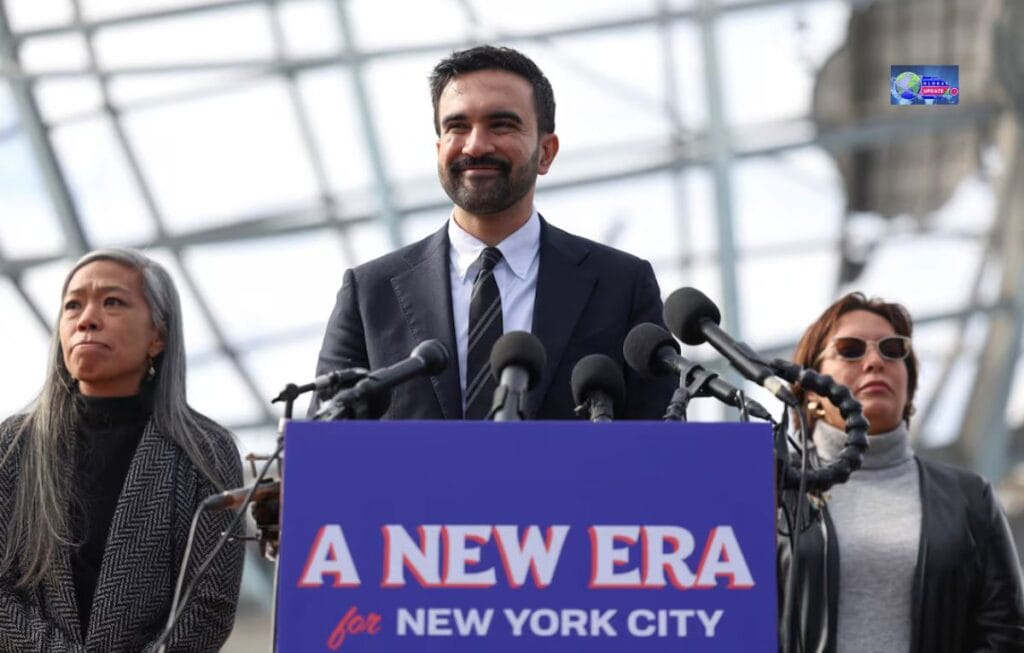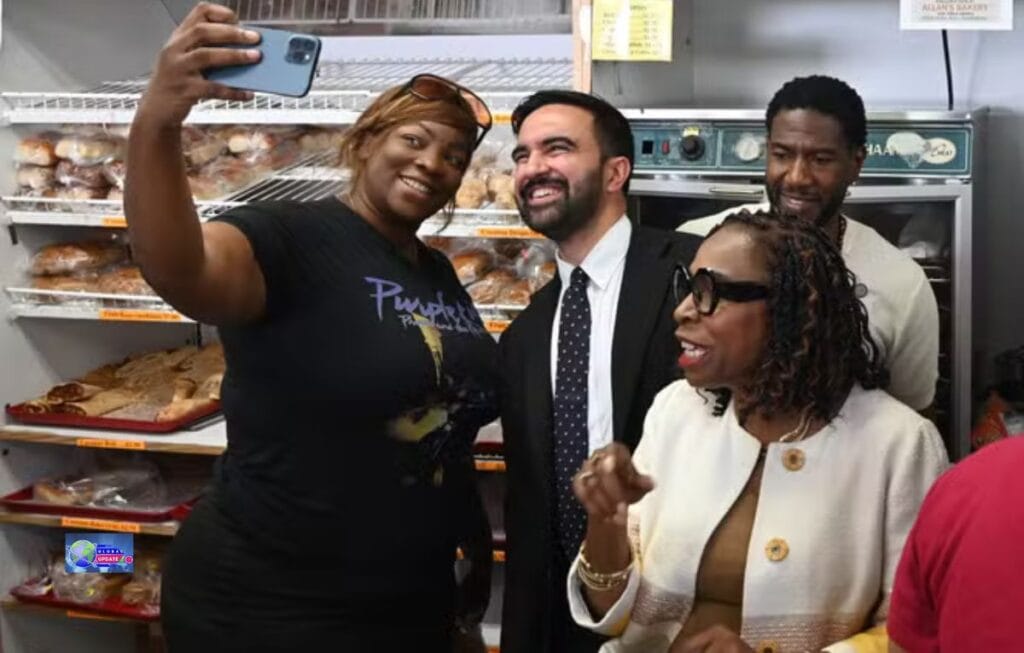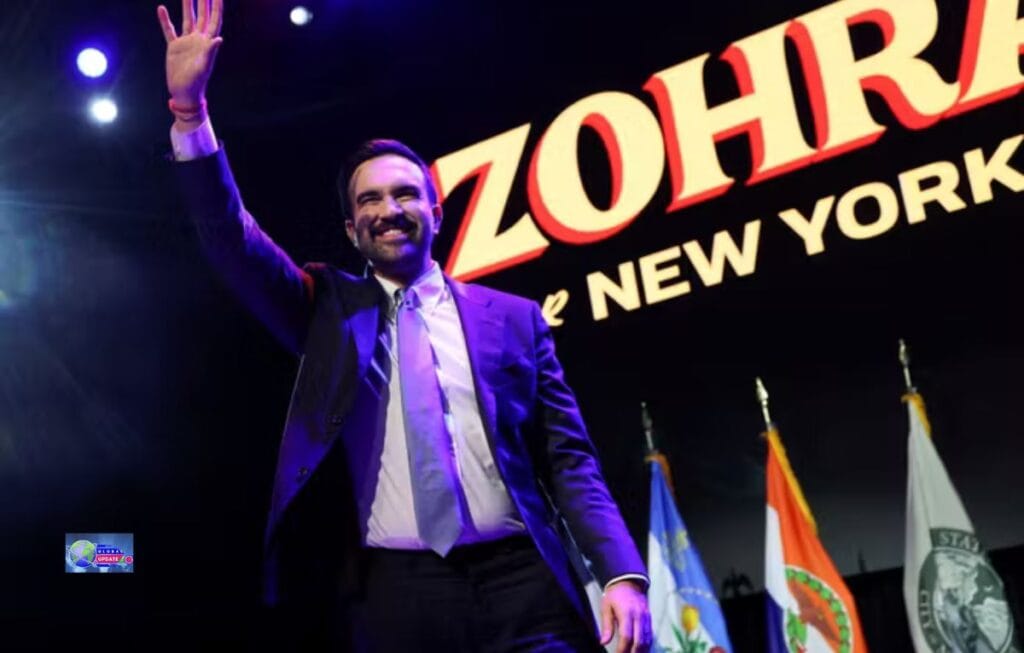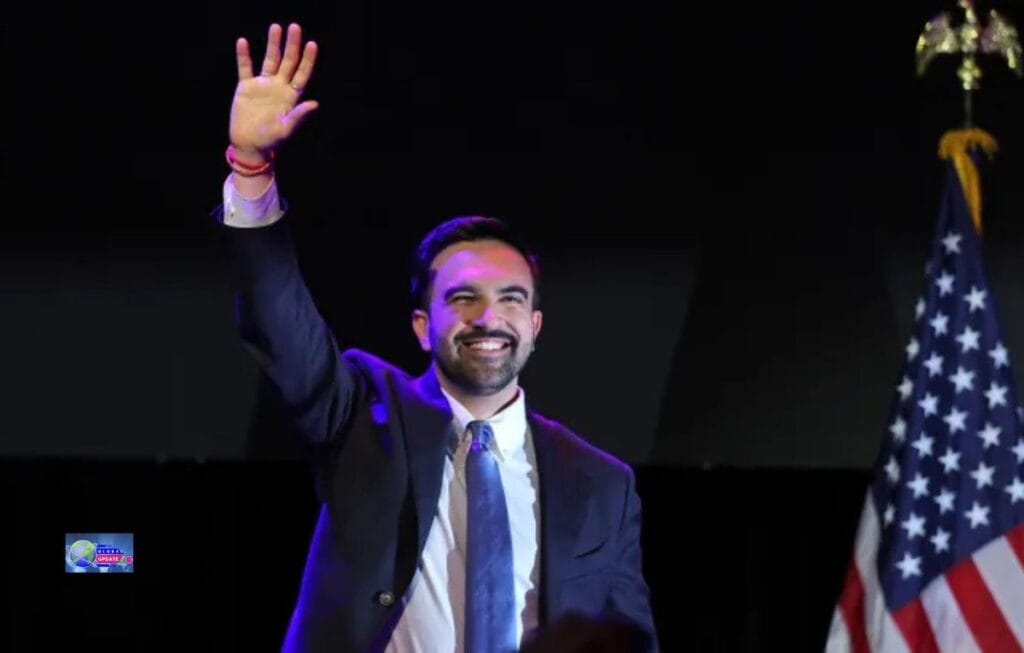In a landmark political shift, Zohran Mamdani, a 34-year-old Democratic Socialist and the son of Ugandan-Indian immigrants, has been elected as the Mayor of New York City.
The election, held on November 4, 2025, marks a series of historic firsts: Mamdani becomes the first Muslim, the first South Asian, and one of the youngest mayors in the city’s history.
His victory symbolises a broader generational and ideological transformation in America’s largest city. One increasingly shaped by working-class, immigrant, and youth voices.
Election Results and Opponents
According to the Associated Press and The Guardian, Mamdani secured approximately 50.4% of the vote, defeating former New York Governor Andrew Cuomo, who ran as an independent and received around 41.6%, and Republican candidate Curtis Sliwa, who trailed with about 7.1%.
The race, closely watched across the nation, highlighted the growing strength of progressive movements in traditionally centrist Democratic strongholds.

Grassroots organizers powered Mamdani’s campaign, local tenants’ unions, and progressive groups that had long mobilising around issues such as housing, transit access, and economic justice.
His win was declared late Tuesday night, followed by celebrations across Queens, Brooklyn, and the Bronx—areas that overwhelmingly supported him.
A Progressive Platform Built on Economic Justice
Zohran Mamdani’s campaign was distinct for its unapologetically progressive agenda.
Drawing inspiration from the democratic socialist tradition of Bernie Sanders and Alexandria Ocasio-Cortez, Mamdani’s platform centered on reducing economic inequality and expanding access to public goods.
Key proposals included:
- Universal Rent Control: Strengthening and expanding rent-stabilised housing while capping rent increases across the city.
- Free Public Transit: A plan to make city buses fare-free within the next five years, funded by taxes on large corporations and real estate speculation.
- Worker Empowerment: Raising the city’s minimum wage to $30 per hour by 2030 and supporting the unionisation of service-sector employees.
- Public Ownership Initiatives: Establishing city-run grocery stores and pharmacies in areas underserved by private markets.
- Climate and Housing Policies: Building affordable green housing and retrofitting older buildings to cut carbon emissions.
Speaking at his victory rally in Queens, Mamdani declared:
“This win belongs to the people who ride the subways, who struggle to make rent, who keep this city alive. New York should work for everyone, not just the billionaires and landlords.”
Historic and Cultural Significance
Mamdani’s victory represents a cultural milestone as well as a political one. Born in Kampala, Uganda, to Indian parents, his father was a filmmaker and his mother a scholar.
Zohran Mamdani moved to the United States as a child and grew up in Queens. Before entering politics, he worked as a housing counsellor and community organiser.
In 2020, he was elected to the New York State Assembly, representing Astoria, where he quickly gained recognition for his bold stances on tenant rights and foreign policy issues, including his outspoken criticism of U.S. military aid to Israel.
Zohran Mamdani mayoral campaign built upon his identity as a Muslim immigrant and democratic socialist, appealing especially to younger voters and New Yorkers disillusioned with establishment politics.
As Al Jazeera noted, Mamdani’s win “signals the growing normalisation of Muslim and South Asian political leadership in the American mainstream.”
It also reflects shifting demographics: nearly 40% of New York City residents are foreign-born, and more than 800,000 Muslims live in the metropolitan area.

A Changing Political Landscape
For decades, New York City politics has dominated by centrist Democrats with close ties to Wall Street and real estate interests.
Mamdani’s win, coming after years of progressive advances in city council and state assembly races, suggests that this balance of power may be changing.
Political analysts on PBS NewsHour noted that his victory was the culmination of a decade-long grassroots movement focused on housing justice, climate action, and racial equity.
Many of the volunteers who powered Mamdani’s campaign had previously worked on efforts to “defund the police” and expand public housing, causes once considered politically risky.
Still, Mamdani faces steep challenges ahead. Implementing his platform will require navigating complex political realities, including working with a state legislature and governor who may not share his progressive vision.
The city’s budget constraints, especially after years of pandemic-era debt, will also test his ability to deliver on ambitious programs like fare-free transit and rent caps.
Criticism and Controversy
While Mamdani’s election has hailed as a breakthrough by progressives, critics argue that his policies could strain the city’s finances and deter investment.
Business groups, including the Partnership for New York City, have warned that higher corporate taxes could drive companies out of the city.
He has also faced criticism for his outspoken foreign policy views, particularly his support for Palestinian rights and his calls to reconsider New York’s economic ties with Israeli firms.
Some political opponents accused him of “overstepping” local responsibilities with international activism. Zohran Mamdani, however, has defended his positions as consistent with human rights and New York’s role as a global city.
The Road Ahead
Zohran Mamdani scheduled to sworn in on January 1, 2026, succeeding incumbent Mayor Eric Adams, whose administration was marred by controversies over policing, housing affordability, and campaign financing.
In his first 100 days, Mamdani has pledged to:
- Implement an emergency rent freeze across all five boroughs.
- Begin the process of eliminating bus fares on major routes in Queens.
- Create a new Office of Social Housing to oversee the expansion of affordable units.
- Establish a “People’s Budget Council” with citizen representatives to increase transparency in city spending.
Whether he can translate his bold vision into tangible policy remains to seen. But even his critics admit that his election has redefined what is politically possible in America’s largest city.

What This Means
- His election signals a shift in New York’s political landscape, emphasising progressive policies and community representation.
- Given his background and platform, his term expected to focus on housing affordability, public transit, equitable services, and labour.
- However, some media coverage notes concerns about how quickly and effectively his agenda can implemented, given the city’s complex politics and finances.
Conclusion
Zohran Mamdani’s ascent to the mayorship of New York City is a defining moment for American urban politics.
It marks the first time a Muslim, South Asian, and democratic socialist will lead the nation’s most populous city, a symbolic triumph of diversity and progressivism.
Yet beyond symbolism, his win underscores a profound transformation in how New Yorkers view governance: from a city once run by corporate-friendly centrists to one increasingly influenced by the working class, immigrants, and young activists.
As Mamdani prepares to take office, his administration will serve as a test of whether a bold, people-centered agenda can thrive in a metropolis long shaped by wealth and power.



